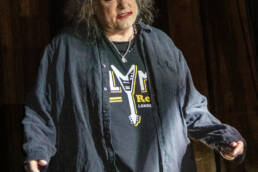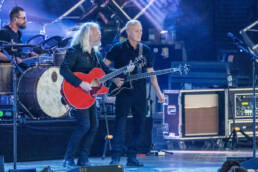Jewel: The Yodeler Who Conquered the World
Once homeless, she’s made her mark. Recently rumored to be seeing Kevin Costner.
Imagine a girl with wild hair and a voice like a mountain stream, strumming a guitar in a frostbitten Alaskan barn, singing to the cows and the wind. Jewel Kilcher didn’t chase music—it was her blood, her breath, a tether to a life that could’ve swallowed her whole. From homesteads to coffeehouses, her path to stardom is a ballad of resilience, raw talent, and a spirit that refused to bend. This is the story of Jewel, the folk-pop poet who turned hardship into harmony and stole our hearts with every note.

The Spark That Lit the Fire
For Jewel, music wasn’t a career—it was survival. Born into a rugged Mormon family in Utah, then raised on an 800-acre homestead in Homer, Alaska, she grew up with no running water, no TV, just the howl of wolves and her father’s folk songs. At six, she started yodeling beside him at local gigs, her crystalline voice cutting through saloon smoke. But when her parents split, and her dad’s drinking turned dark, music became her shield. By 15, she was busking on Anchorage streets, dreaming of escape. A scholarship to Michigan’s Interlochen Arts Academy at 16 honed her craft, but it was living in her van after graduation—penning songs amid San Diego’s surf—that lit the fuse. Music was her way out, her voice a ticket to a world beyond the cold.

A Life Shaped by Sound
Jewel Kilcher arrived on May 23, 1974, in Payson, Utah, to Atz Kilcher and Lenedra Carroll, part of a Swiss-descended clan that carved a life off Alaska’s grid. Her childhood was split between rustic chores—milking cows, chopping wood—and stage lights, singing with her dad and brothers. After the divorce, her mom took her to Anchorage, but poverty and instability followed. At Interlochen, she mastered guitar and opera, then hit the road, landing in San Diego. There, coffeehouse gigs at The Inner Change caught Atlantic Records’ ear in 1994. Her debut, Pieces of You (1995), exploded, selling 12 million copies and making her a ’90s icon.
She’s navigated love—married cowboy Ty Murray in 2008, had son Kase in 2011, divorced in 2014—and kept her roots alive, even popping up on Alaska: The Last Frontier with her dad. Through it all, her songs stayed pure, a diary of a wandering soul.
The Career That Soared
Jewel’s a solo act, her voice and guitar her only constants, though collaborators have shaped her sound. Pieces of You (1995) was her breakout, followed by Spirit (1998), 0304 (2003), and genre hops like Perfectly Clear (2008, country) and Picking Up the Pieces (2015, folk redux).
Bandmates and Collaborations:
No fixed band, but early producer Patrick Leonard and guitarist Steve Poltz (co-writer of “You Were Meant for Me”) were key. She’s duetted with Dolly Parton (“Two Doors Down”), Kelly Clarkson, and Rob Thomas, while her Lullaby (2009) album nodded to her son.
TV and Film:
Jewel’s voice graced Clueless (“Who Will Save Your Soul”) and The Craft (“Under the Water”). She played June Carter Cash in Ring of Fire (2013), danced on Dancing with the Stars (2009, withdrew due to injury), and judged The Sing-Off. Her memoir, Never Broken (2015), hit screens as a doc.
Awards and Honors:
Four Grammy nods (no wins), but she snagged an American Music Award for Best New Artist (1997) and an MTV Video Music Award for “You Were Meant for Me” (1997). In 2021, Alaska named her an Honorary Cultural Ambassador.
Biggest Songs:
- “Who Will Save Your Soul” (1996) – Written by Jewel, it hit No. 11, a folk-pop sermon.
- “You Were Meant for Me” (1996) – Co-written with Steve Poltz, it peaked at No. 2, a heartbreak classic.
- “Foolish Games” (1997) – Jewel’s solo pen, it reached No. 7, a piano-driven gut punch.
- “Hands” (1998) – Co-written with Patrick Leonard, it climbed to No. 6, a soaring plea.
The Shadows of Controversy
Jewel’s life hasn’t dodged the rough patches. In 1997, her label pushed a sexed-up image for Spirit, clashing with her earthy vibe—fans cried sellout, though she insisted it was her choice. Her 2003 album 0304, with its pop-dance sheen, baffled folk purists; she called it “an experiment,” but some never forgave the shift.
Her 2014 divorce from Ty Murray stirred gossip—rumors of his affairs and her retreat to Alaska fueled tabloids, though both stayed classy in public. More recently, her 2020 comments on mental health and “cancel culture” during a podcast sparked backlash from progressive fans who felt she downplayed systemic issues. Jewel doubled down, tweeting, “I speak from my heart, not a script,” but the rift lingered.
Her estranged mom, Lenedra, sued her in the early 2000s, claiming mismanagement of earnings—a messy, quiet-settled feud that left Jewel wary of trust. Yet, she’s kept singing, her voice a lighthouse through the storms.
The Voice That Endures
Jewel’s story is a tapestry of grit and grace—a girl who yodeled her way from Alaska’s edge to the world’s stages. Music wasn’t her ambition but her lifeline, a thread from van nights to Grammys. She’s dodged the traps of fame, staying true to a voice that’s equal parts fragile and fierce. As she tours into 2025, that crystal-clear tone still stops you cold—proof that some songs don’t just play, they heal. Jewel’s not just a singer; she’s a survivor, strumming her truth for anyone who’ll listen.








